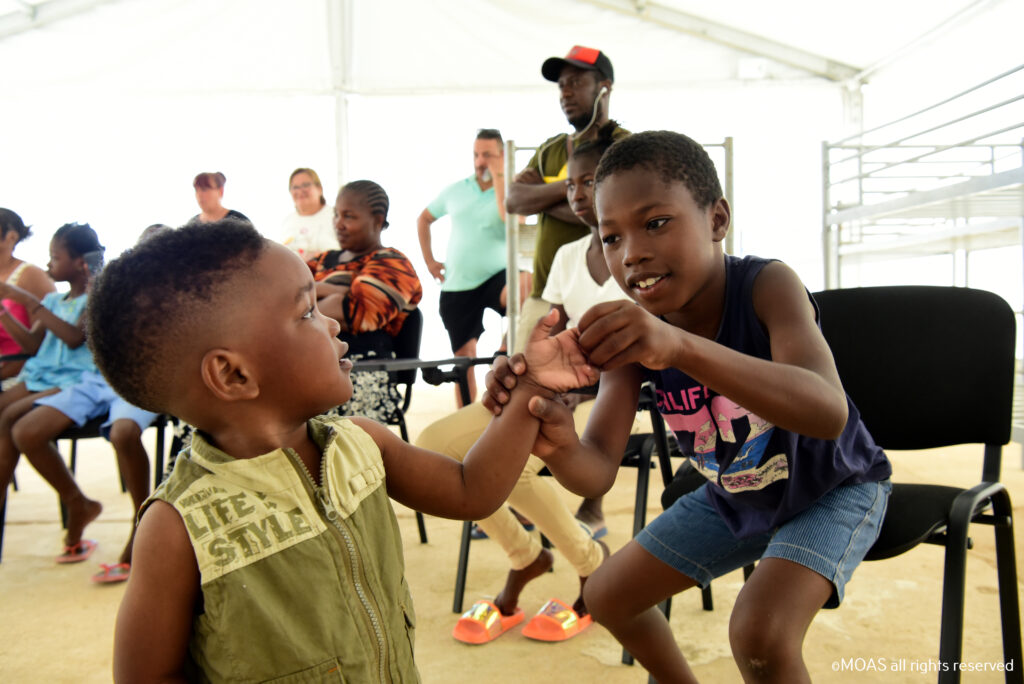Education serves as a powerful cornerstone for integrating migrants. It equips them with the tools they need to navigate their surroundings, fosters social connections, and empowers them to contribute meaningfully.
One of the most crucial aspects is language acquisition. Strong language skills open doors to employment, higher education, and civic life.
However, education for successful integration goes beyond just language. Schools can play a vital role in promoting intercultural understanding. Migrant students often face challenges adapting to a new education system. Schools can address these by offering tailored support programs like bridging classes to address academic gaps, and mentorship initiatives that connect migrant students with peers who can offer guidance and understanding. Education is a two-way street. It’s not just about equipping migrants to integrate but also about educating the host society. Programs that promote cultural awareness and understanding within the broader community can help break down stereotypes and foster a more welcoming environment.
For migrants navigating a new job market, skill-building courses play a crucial role in bridging the gap between their existing skills and the demands of the local market. Vocational training and certification can provide migrants with qualifications recognised by local employers. Many asylum seekers struggle to translate their foreign experience into a format local recruiters understand. Resume writing and interview skills courses can teach them how to build a compelling resume, highlighting relevant skills and experiences and providing guidance on interview techniques and cultural expectations. For some migrants, starting their own business might be the most viable option. Courses can provide them with the knowledge of local business regulations, marketing strategies, and financial management to turn their skills into a sustainable career path.
In today’s digital world, basic computer skills and familiarity with online tools are essential. Digital literacy courses can equip migrants with the ability to navigate online platforms, use productivity software, and develop digital literacy. Soft skills like teamwork, problem-solving, and time management are equally important. Training programs can help migrants develop these skills in their new cultural environment.
In addition, recognising prior learning, skills and qualifications acquired abroad can save time and frustration for migrants with valuable experience.
Investing in education for migrants is an investment in the future. A well-integrated migrant population contributes not only to their success but also to the social and economic environment of the host country. Education can bridge cultures and pave the way for a more harmonious and inclusive society.
MOAS integration projects
This is why, in Malta, MOAS has established several educational initiatives to support asylum seekers, refugees, and migrants. Our mission is to assist beneficiaries and continue to do so in their educational path so they can improve their autonomy skills and have easier access to local resources.
MOAS has provided “English for Beginners” courses, the Remote Learning Initiative, with tablets and modems to migrant families and students to help children and full-time adult learners keep up with their studies during Covid period, and the Family Hosting Project, an initiative intended to offer accommodation and integration support to migrants and refugees who wish to continue their secondary education.
In March MOAS, in collaboration with Awas (Agency for the Welfare of Asylum Seekers), inaugurated a new multifunctional space , the “Learning and Information Centre” at the Hal Far Hangar Open Centre (HOC) where migrants can access educational and development resources to boost integration.
The digital divide is a major obstacle for migrants in Malta. Essential services like job applications, healthcare access, and benefits enrollment are increasingly online, leaving those needing internet access or devices significantly disadvantaged, especially in education.
The centre aims to bridge this gap and empower migrants to integrate and contribute to Maltese society through education and skill development. We provide a welcoming space equipped with desktop computers, tablets, and high-speed internet alongside traditional resources like books, learning materials, and presentation equipment.
Additionally, this space allows to other NGOs and associations to conduct workshops and training sessions. The centre is open for independent use outside of scheduled activities. Residents can utilise the facilities for tasks like writing resumes, self-study, online courses, and registering for essential online services.
If you are interested in the work of MOAS and our partners, please follow us on social media, sign up to our newsletter and share our content. You can also reach out to us any time via [email protected]. If you want to support our operations, please give what you can at www.moas.eu/donate.

